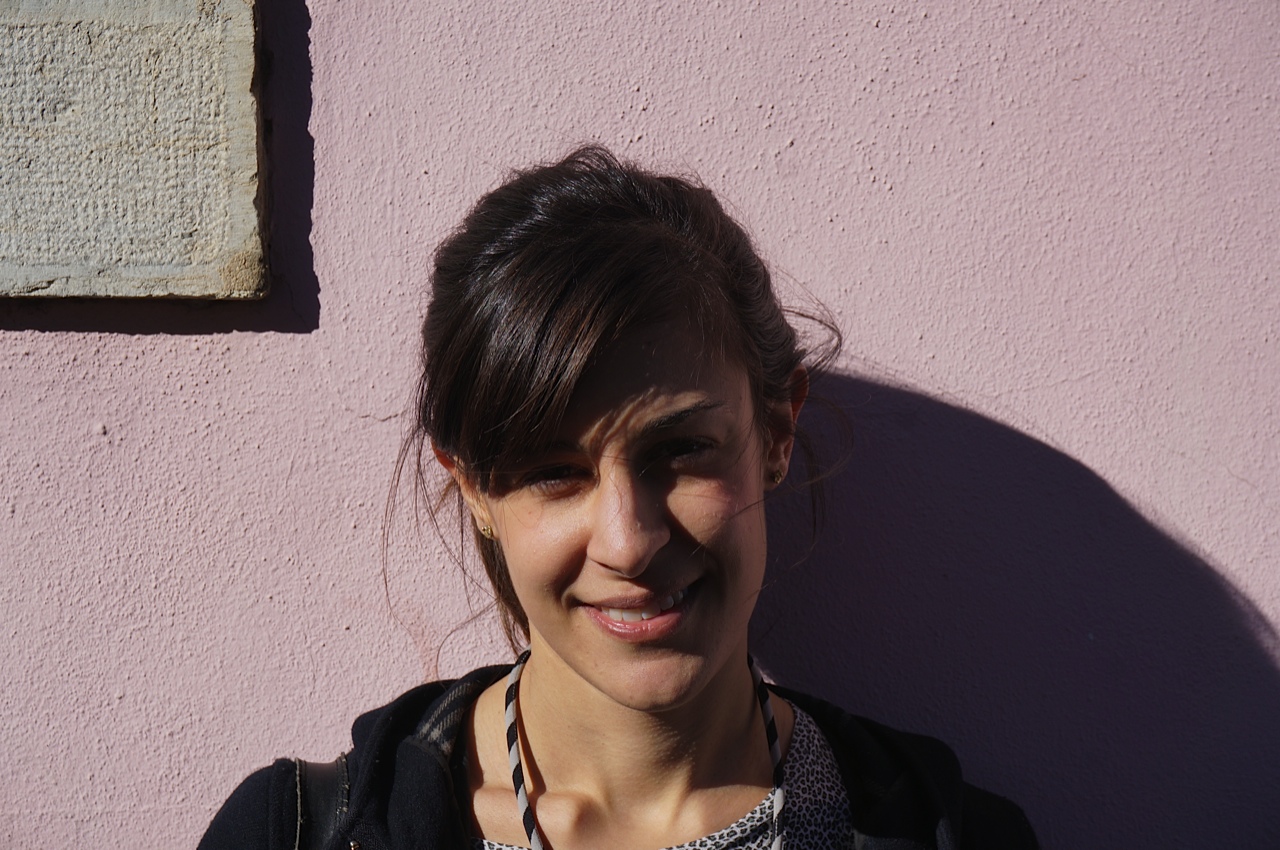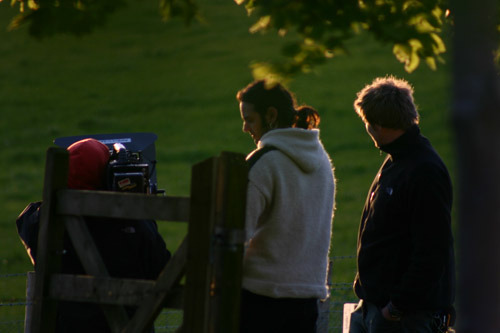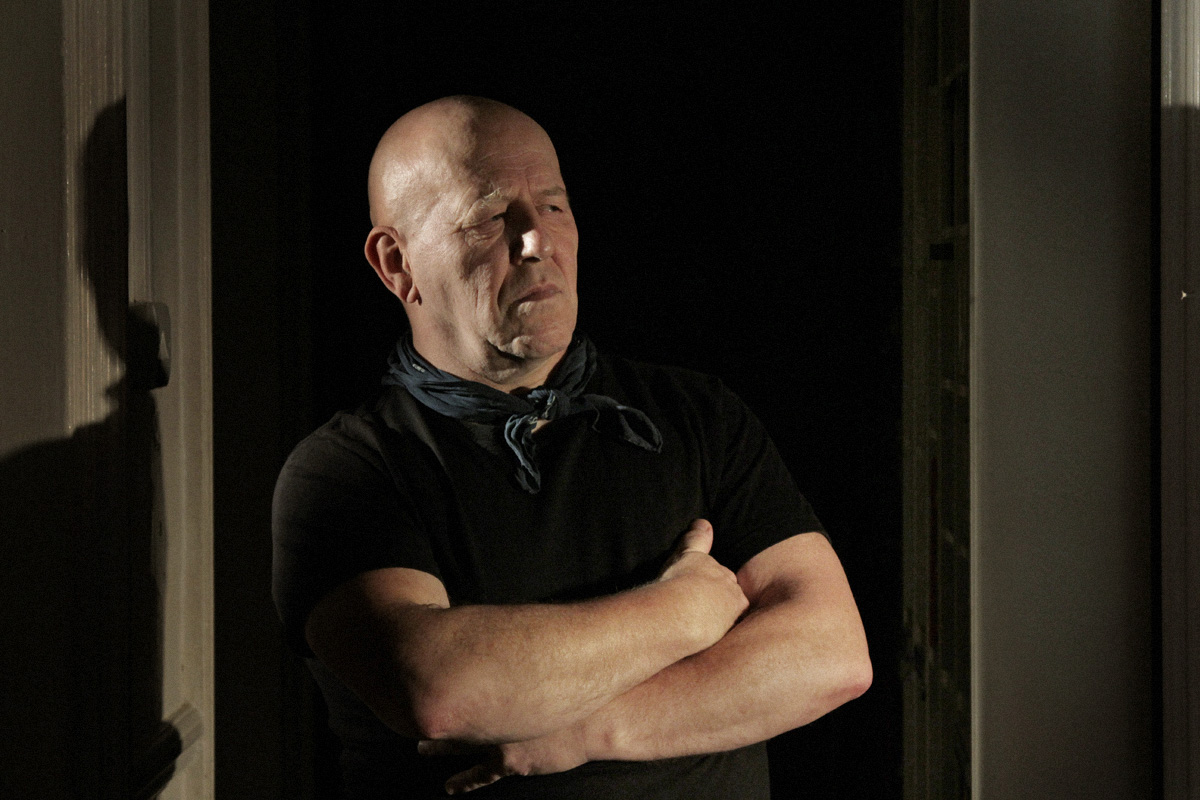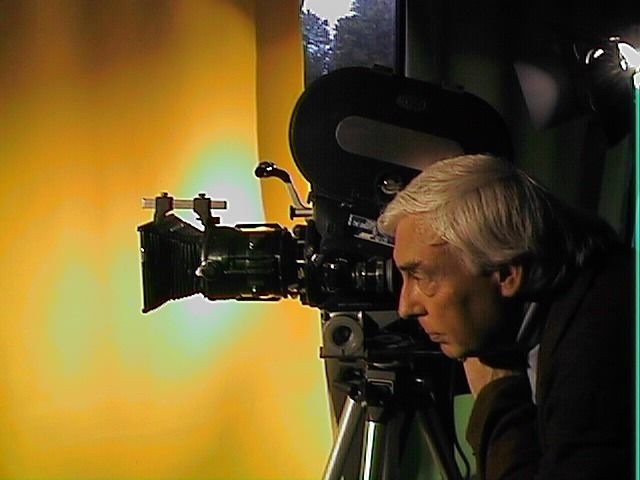ASK & DISCUSS
INDEXBring a camera in the US
11 years, 6 months ago - Caroline Demopoulos
Hi there,
A British filmmaker l'm working with wants to bring her camera in the US to shoot a documentary taster. What is the legislation for that? Is there any link l should look into?
Many thanks!
Caroline
Only members can post or respond to topics. LOGIN
Not a member of SP? JOIN or FIND OUT MORE
11 years, 6 months ago - Lucas Jedrzejak
Just to add to my post. We did not have any carnet but had letters from manufactures Sony and JVC that are lending the kit to us. We also had the full insurance for all of the kit and a letter from a famous production company/distributor. Mind you it was Las Vegas in 2007 so maybe kit carnets were
not as compulsory as they are now. I was making a doc about Ricky Hatton fighting Floyd Mayweather so the whole US were excited about that and possibly immigration assumed we were the crew to cover the fight, though we were allowed only behind the scenes. Filming in Vegas could be tricky as Martin says cause most of the land with its hotels and casinos is privately own. Surprisingly we didn't have any problems but could have easily cross the line several times and have footage confiscated. I guess everyone was in a boxing mood and there were several thousands of Brits on the night (December 2007) so we managed to get away with everything. I did use big JVC and Sony Vari cameras with or without havy IDX batteries, matte box, field monitor etc and was always ok'. Used the same "i visa" with a different doc subject. My last trip was in 2011 NYC, i/v'ing a few DJs and didn't have any problems neither a carnet. Though perhaps I was always lucky but had too much paper work than ever needed which helped. On the other hand I was in Africa and China in last few months with plenty of gear and that didn't pose and problem even though we didn't have media visas issued and came officially as tourists on a invitation from a Australian cycling company based in China.
I personally think that being a passionate filmmaker with genuine intention full paper work to prove your reasons for entering US makes it difficult for him/her at immigration to refuse your entry. But having an "I Visa" in your passport is a huge plus.
11 years, 6 months ago - Sheila Marshall
No, Marlom, I didn't say that. As long as C4 hasn't signed a contract with the shooter, it is personal use, isn't it? Footage might never be used. And when C4 does sign, she doesn't need to hire a US crew as they can get the visa for her. The current legislation simply doesn't cover cases like this. The embassy can't help: they can't give out a media professional visa to someone who doesn't fulfil the official criteria, and they have no control over what happens at border control: they can't clear it in advance, so calling them will be of little use.
The other suggestions given here (of hiring or buying a camera over there): good idea, but make sure that it shoots at 50fps, because some US models still only shoot at 60.
11 years, 6 months ago - Peter Ward
In reply to: "Yes, and maybe NTSC (Never the same colo(u)r!) and not PAL!! ...."
Huh? HD (and so far broadcast 4K) uses REC 709 color space regardless of the frame rate. About the only time your would encounter NTSC these days is hooking a VHS player up to TV.
11 years, 6 months ago - rob curry
you need an ata/carnet, or all yoru kit will be confiscated from you at the airport - but the production company should sort this out for you. they cost a fair bit and the application process is a nightmare
http://www.londonchamber.co.uk/lcc_public/article.asp?aid=100
11 years, 6 months ago - Paddy Robinson-Griffin
For those who don't understand carnets, the idea is that it's a list of the exact kit list that goes into and back out of a country (serial numbers and everything). You use them as a promise to customs that you're not importing kit to sell, they check it in and out, and so you don't have to pay duty. You can imagine how useful this is when touring crossing a different border every day!
The worst case scenario you can face tax-wise is that you're effectively importing goods into the destination country, then re-importing it when you get home. That means you could be be held liable for two rounds of import duty and tax.
11 years, 6 months ago - Bruce M. Foster
As someone whose first job was with a customs broker, I would suggest you contact one. This is a New York based one, http://www.nycb.com. Research online for UK ones? It is their job to deal with that which is entering the country and leaving again. Amongst other things involving imports and exports.
11 years, 6 months ago - Martin Belderson
Whoops, sorry. I meant Constitutional, not institutional. Memo to self: never try to write a long reply on a smartphone.
11 years, 6 months ago - Marlom Tander
If you are travelling in a professional capacity then whether or not there is a contract with any third party is irrelevant. If I go to the USA with an intention to film my holiday, that's personal and I'm a tourist. If I go with the intention of filming material that relates to my work then I'm not a tourist, it's business, whether I'm doing it under contract or on spec. Whether or not the special I Visa applies. And I agree, without a contract in place, it doesn't.
As you say, the Media Visa is really for foreigners who are to be paid to be in the USA, which doesn't seem to be the case for the OP. It sounds more like business research to me, and Embassies generally love helping people who can tell a "we plan to spend money in America" tale. So I would certainly have a conversation with them because they might :-
a) Come up with a solid option - a particular Visa, or confirming that for the type of trip required no Visa is needed.
b) Confirm that there isn't a solid option, but possibly (if you can strike up a good relationship) write a letter to the effect that "your visit is one that we'd view as business research as it's an unpaid speculative research trip for a pitch, NOT a freelance commission or contracted. As such the I Visa is not applicable. The final decision will rest with Border Control, but we would certainly not advise you not to travel, and wish you luck".
So in (b) you arrive in the USA with a sheaf of correspondence in which you have described the purpose of the trip, the hoped for benefits to the US economy IF it gets commissioned and clearly have the best wishes of the Embassy. It's not a Visa but I can't see any Immigration guy turning you back unless your kit is seriously OTT.
And if all else fails THEN consider the risk/reward aspect of simply being a tourist based on how much like a tourist you appear to be :-)
11 years, 6 months ago - janus avivson
I was filming a lot in the US over the last ten years and I learned that if you want to work there as a filmmaker or a journalist you need a working visa (there was a story of a BBC journalist going to LA who did not have one and was turned back at the immigration). My cameras were small and when asked - I was telling that I have it for my private tourist use. Which was the truth. Obviously it was nobody's business what I was doing with my reels after my return to the UK. So, God forbid, do not lie to the immigration - but don't complicate your life and don't tell them everything. Unless you go for all three months and employ a local crew and so on, which is unlikely.
11 years, 6 months ago - Marlom Tander
Kris, you're surely not suggesting that she lie to immigration? If you want to go that way you need a properly researched cover story - decent answers to the questions of where you're going, staying and why etc. If they don't believe her she'll be on a plane home and blacklisted. An itinerary based, for example, in the two bit towns of the southern border for a docu on illegals might not wash as a tourist, but one around the Everglades for "Gators vs, Pythons, how an alien invader changed an ecosystem" works if you claim to be a nature tourist.
Might be better to talk to the Embassy and state that she's researching for a docu and ask their advice re visas for what is basically a business trip for a project that will end up hiring Americans if it succeeds. If the camera is still an issue, it might be best to just buy one when you arrive, even second hand, and sell it when you get home. Just how good a camera do you need?
Good luck
11 years, 6 months ago - Sheila Marshall
If she's a journalist or media professional that works for a broadcaster or big production company, she should get a special visa (look at the US embassy website).
If she's an independent or self-funded person, she won't be able to get that visa, and the situation is a bit ambivalent. In principle, the border control agency could send her back if they were not happy with any explanations she would give them. The reason for this is (so I have been told) that they are protective of the internal labour market and want you to hire a US camera person if you shoot on US soil, but in this day and age of no or low funding, that's often simply impossible.
We were in in the latter category 2 years ago. We took our camera in as hand luggage, but had transferred it from our specialised camera bag into a normal backpack. We were not asked to open it. In that case she should say that she is in the US for leisure purposes and the camera is for personal use.
11 years, 6 months ago - Martin Belderson
Get the "I" Visa. If you're freelance, it's a problem, you need a letter from an employer - C4, BBC etc (and they will provide it promptly, they're used to this kind of thing). If not, get a letter from your production company. Keep it straight-forward and you will get your visa.
As Lucas says,the visa lasts five years. It's good value for the money and is incredibly useful. Saves you loads of time and hassle. Oh, and you do get hassle without one. Last year, my "I" visa expired just before I flew to the States with footage to screen for a client. I thought the visa waiver applied to me - I wan't filming, just there for a meeting, but I got nabbed at Atlanta airport. In the end, the immigration agents were kind and generous, and let me travel onwards (although I missed my connection). It was a grey area, they could have kicked me out of the country. In the scenario we're discussing, they will, without hesitation.
This talk of cover stories make me nervous for the sake of anyone who tries it. What if it goes wrong? You're booted out - you have to pay for the flight back, by the way - a visa application becomes a thousand times harder, and you cannot sneak in using the visa waiver scheme anymore (Homeland Security are very keen on checking computer databases). Why take the risk? It's unprofessional.
Marion's Plan B is interesting but also risky, it's more akin to my misguided attempt. Freelancers shooting on spec are not eligible for an "I" visa without a contract, but here's the Catch-22: it's irrelevant whether you're being paid or not, the visa guidance makes it quite clear that it's the nature of your activity - documentary making - that decides what kind of visa you need. Freelancers can only get in with an "I" visa. So you need the visa, but you cannot get one. Homeland might let you in (as in my case), but they might not. If I had been entering the States for a shoot, I would have renewed my visa.
Lucas, I don't know how you got through US Customs without a carnet. So I assume you had one. You cannot wheel broadcast gear past Customs without the correct paperwork. If they're kind, they'll impound the kit until you get the right paperwork, but that's a lot of work to do at long distance and a major disruption to your schedule. It might be worth contacting a carnet agent at least week before you fly out. You're also right, you won't get stopped filming in public places in the States, but it's no big deal, you're protected by a institutional Amendment. You can shoot crime scenes for the same reason, provided you stay the right side of the police lines, go any further and you need police department permission, with ana ttached public affairs minder. Private property is another matter, you need permission and can be sued if you don't get it. Las Vegas hotels are very touchy about this. Some of their punters do not want to be filmed. I wonder why?
With the new tighter rules coming into force on weight AND size of cabin baggage, I'm worried about the impact this will have on travelling with expensive kit. Might not be able to travel with vulnerable cameras in the cabin. Putting it in the hold runs the risk of damage. If, as in Lucas' case, you have no production insurance and you're hiring the camera, you will personally liable for replacing it. That's a terrifying prospect. Paddy's advice is sound. Rent locally. Most digital cameras are switchable between different standards - it's just software now - and, anyway, transcoding is not a big deal anymore.
Good luck, but please, be professional and stay legal. Anything else is not worth the risk.
11 years, 6 months ago - Justin Temple
I just returned to the UK from shooting a documentary taster in Phoenix. I had a DSLR plus a couple of lenses, sound recorder, radio mics (all hand luggage of course), plus small lights and a smallish tripod (in my hold luggage). I travelled on a regular visitor visa (which covers business, by the way) and did not travel with a carnet. Nobody batted an eyelid when I entered the US. A friend who recently travelled with similar equipment (except a Canon C100 rather than a DSLR) into Las Vegas also had no problems. On previous occasions with much more substantial equipment I have travelled with a carnet (but they're an expensive hassle so I try to avoid them if I think I can). This is not meant to be taken as advice, just examples of my own experiences... I've travelled a lot and tend to weigh it all up for each trip...
11 years, 6 months ago - Lucas Jedrzejak
Hi Caroline,
I shot loads of stuff in LA, Vegas, Atlanta and NY. What best worked for me (and I am not even British) is this:
1. I obtained around $100 media visa (valid for 5 years) based on a letter from a production company (pretty basic stuff, stating what are you going to do there and how many trips you intend to make over the course, with a working film tittle proposition)
2. Then I did a similar letter from my small indie company to rest of the crew. All got media visas with no problems.
3. I used to bring loads of kit with me on planes and never questions were asked on any of the US borders. We did even brought some lights, DAT sound and tripods and heavy ENG cameras. The immigration got rather excited that we are a film crew. Most of the sensitive gear was in the cabin as if in the hold, the insurance would not cover accidentally damaged and airlines often don't take responsibility for broadcast gear.
4. We never got stopped once in US with our cameras, even filming from cars in Vegas but once been advised to move a little further cause we were obstructing hotel customers. Fair point as we were in a casino full of CCTV cameras ;-)
5. We always behaved in a sensible way and never upset anyone but it depends what are you intend to shoot. If it is a crime scene in the centre of NYC, I guess it could have been different. Good luck! US is great for filming, especially if you are in a Californian sun!..
11 years, 6 months ago - Paddy Robinson-Griffin
Rent one from a local production company if you want a decent one, or get something cheap and cheerful over there. There are problems with visas, batteries (so many in a case/out of a case/hold, on the camera/etc depending on which airline/country), etc., it really isn't worth the hassle when instead you could just come back with a hard drive with the footage and no excess baggage fees.
11 years, 6 months ago - Franz von Habsburg FBKS MSc
Yes, and maybe NTSC (Never the same colo(u)r!) and not PAL!! Depends on what you plan in taking. A Canon or Mitchell! Bit diff in size.










